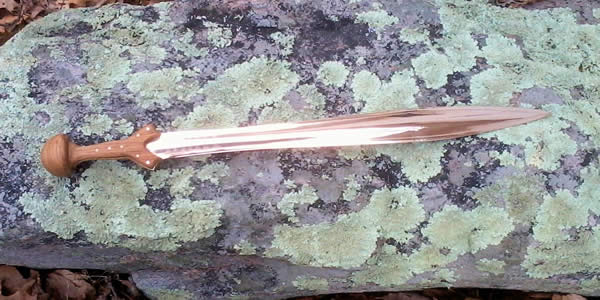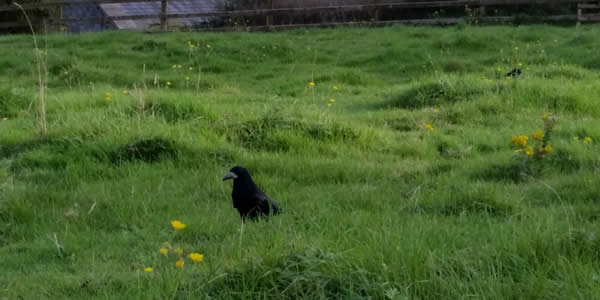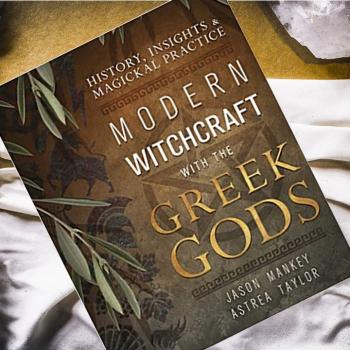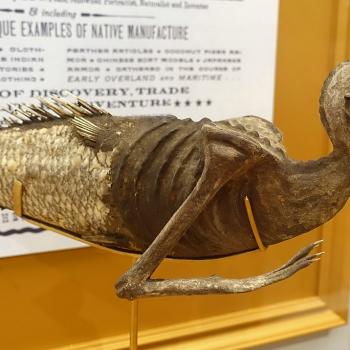As we move into the new year we enter into the territory of new year’s resolutions. The idea of resolutions always makes me thinks of the somewhat related concept of oaths, since to me there’s a thin line between publicly declaring a goal you will accomplish and making an oath to accomplish that same goal. In both cases people are witnessing your words, but in one it’s only a personal statement while the other is a more formal promise.
Oaths

Oaths are a pretty serious business, or they should be. An oath, after all, is a promise to do/not do something or calling on something to verify your truthfulness. The first kind of oath is usually invoking either a higher power to witness it or offering something as a surety if the oath is broken. The idea with a surety is straightforward – you agree to offer something in payment if you break your word.
In the story of ‘How the Dagda Got His Magic Staff‘ for example the Dagda gives the sun, moon, sea, and land as securities against his promise to return the staff to it’s original owners. The idea of a divine witness is a bit more complicated but generally seems to be that you are calling on the deity, spirit, or such to hold you to your word or act to prove if what you are saying is false.
In the Tain Bo Cuailgne Cu Chulainn swears an oath by saying ‘I swear by the God my people swear by’ and in the same tale Fergus swears by his sword as a sacred thing of the goddess Macha. The Romans recounted that the Gauls made oaths by the sea, land, and sky, saying that should their oath be broken the sea would rise up and drown them, the land open and swallow them, and the air smother them.
Oaths were not something to be taken lightly. Once made an oath was not supposed to be broken, and a person’s honor rested on their ability to keep their word. Even the Gods were held to this standard, something we see in the story of how Oengus mac ind Og won the Bru na Boinne as his home. In the story he had gotten the Bru’s original owner – some say Elcmar, some say the Dagda – to promise him the use of the place for a day and a night. But when the original owner returned the next day to reclaim his home, Oengus replied that since all time was measured by a day and a night he was entitled to keep the Bru. Rather than be foresworn the owner gave up his home to Oengus. If an oath was broken a person’s reputation was negatively impacted and often they would have to take some reparative action to compensate for it.

Thinking Before Oathing
This is one of those things that’s a lot more serious than most people seem to treat it. An oath is a big deal. Failing in an oath has consequences, whether that oath was a promise related an action or an affirmation of truthfulness. Failing in a regular oath or promise to another person weakens your honor and the strength of your word, but what about when you break an oath to or in the name of a deity? When we swear to a deity or call on a deity to witness an oath we are making we are directly involving that deity in the situation. If we succeed, good. But what if we fail? What if we are knowingly lying? The Gauls who swore by sea, earth, and sky believed those elements themselves would rise up and punish the oath breakers.
I cannot answer the question of what will happen if you break an oath to a deity or spirit, because I believe it depends a lot on which deity or spirit we are talking about. I can say looking at folklore that breaking an oath to the Fair Folk is a profoundly bad idea, and I don’t recommend it. Breaking one to your ancestors? Well how do you think that will go over? Each individual deity has their own personality and inclination to respond differently, but at the least I imagine some éraic, some weregild, some compensation will be expected of you one way or another.
Who Do You Swear By?
As a pagan or polytheist who or what do you swear to and by? How do you handle making oaths? There is something of a running joke in my house with my children, Whenever someone slips into the cultural expression of saying ‘oh my god’ or ‘I swear to god’ whoever is around them will ask, ‘which one?’, and ‘what are you swearing?’. It seems silly but it has taught my children pretty quickly to think about what they are actually saying and to be more careful with their words. I want them to understand that words do matter and oaths shouldn’t be taken lightly. Not when you believe in Powers with agency and independence and in a magical system where the strength of your word impacts the strength of your magic.

As for me, I try not to make oaths unless I think it’s essential to. When I do I am fond of oaths as they are made in the old ballads. In ‘The Well Below the Valley‘ the woman ‘swore by grass’ and ‘swore by corn’; although knowing that corn was a general term for grain and loving alliteration I tend to prefer saying grass and grain. As an animist swearing by grass and grain has just as much weight for me as swearing by land, sea, and sky did (I imagine) for those historic Gauls, and as making a solemn oath to any God. I certainly do not want the grass and grain rising up against me for breaking my word. I will also sometimes swear by something sacred within my Tradition, with the same logic, that I don’t want to break my word and have that turned against me.
Oaths are a serious business, and one I think that we as Pagans and Polytheists should put more thought into. If you haven’t before, perhaps take a moment to contemplate what significance oaths have for you. When you make an oath are you prepared to pay a price for breaking it? Who do you swear to and by? These are important questions I think, and worth considering.

Patheos Pagan on Facebook.

the Agora on Facebook
Irish-American Witchcraft is published bi-monthly on Tuesdays here on the Agora. Subscribe via RSS or e-mail!
Please use the links to the right to keep on top of activities here on the Agora as well as across the entire Patheos Pagan channel.

















